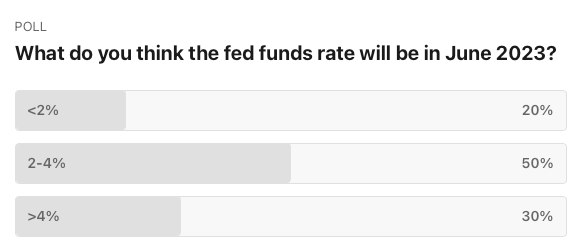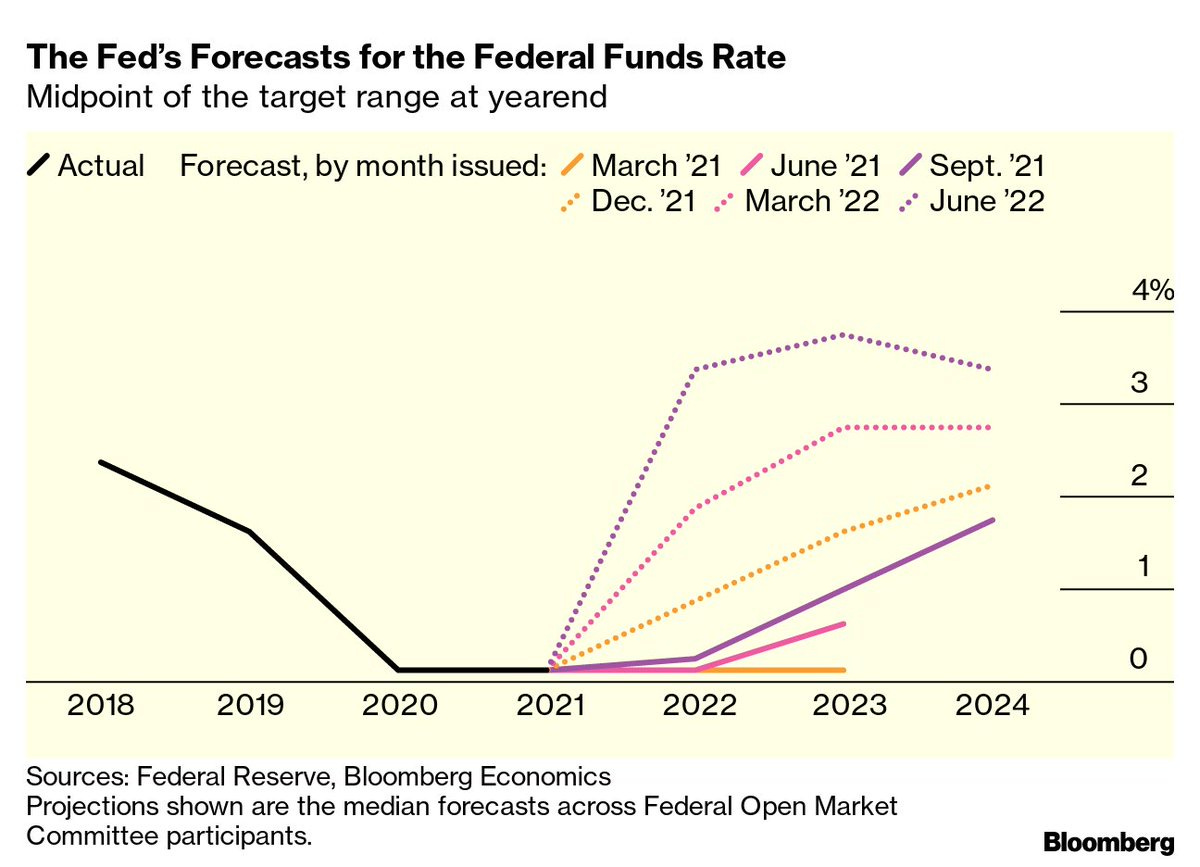High signal digest #4
Mythical Man-Month takeaways, how fakery is taking over the world, economy musings and implications for founders
Est. reading time = 5 min, 45 sec
Today at a glance:
Mythical Man-Month: Essays on Software Engineering = First edition written in 1975 (stood the test of time) and it’s about global warming. No, it’s about building software.
Internet snippets: how fakery is taking over the web, 2 DALL-E wonders, 2 threads on culture, 2 big poker hands, and things people blame on bicycles.
Economy musings: Your poll results. More tightening ahead of us, but the future will be bright! Plus 2 implications for founders.
Why did I read this? Was one of several things I studied to help me serve my teams better. I wanted to understand how people think about building quality products on time and in a way that is sustainable for the working team. I skimmed for the first time when someone took a chance on me at Minecraft. I retained little, but kept the book. In 2018 I was devoted to Streamlabs, picked the book up again, and tried to think through the concepts.
“Adding manpower to a late software engineering project makes it later”
Here are the things that stood out to me:
# of people involved in project = independent # of subtasks
Group comms formula = n*(n-1)/2 where n is # of people who have to communicate to ship
A system/project should be built by as few minds as possible. Example: surgical team = one surgeon and everyone supports the surgeon
2nd system effect = practice discipline on v2. V1 will be bare and in V2 we will be tempted to add everything that was missing from V1. Avoid this and do not deliver a kitchen sink of features.
Estimates are almost always off. Multiple by 1.5-2x
Be mindful of binary/executable size. Set a target early. Users care1
Written documentation is key b/c it (1) communicates decisions to others, (2) highlights gaps in thinking/gives clarity, (3) creates a checklist
Over-communicate. Do not assume.
Code freeze
Bug fixing/program maintenance is an entropy increasing process. Eventually regressions will equal # of fixed bugs.
How does a project get to be a year late? One day at a time. SO stay on top of it day by day to avoid slippage. Focus on the now and set specific incremental milestones.
Above are raw notes from the book from 2018. Quick search just now and here’s an excerpt from CNN interview with the author. How true is this?
It's been 30 years since you wrote your book. Is it still relevant?
…On the other hand, people haven't changed much. That's why Homer and Shakespeare and the Bible are still relevant, because they're all dealing with human nature. I think that's part of the explanation for this book: The problems of managing people in teams have not changed, though the medium in which people are designing and the tools they are using have. Some people have called the book the "bible of software engineering." I would agree with that in one respect: that is, everybody quotes it, some people read it, and a few people go by it.
Light-hearted internet snippets:
🤖 New normal: The Coming Tsunami of Fakery = how fakery is taking over the internet and where we go from here. Think there is a high % chance you resonate with the article (our reality today) and where we are heading (author’s version of the future). Who is working on tools that handle content authorship? Is there anything we can do to ensure that our content consumption doesn’t swing 100% toward machine-generated? If it does, what does that mean for society?
🤯 2 new DALL-E things: (1) marketplace of prompts for sale with outputs - this was fast and its genius, (2) prompts and stunning output
🤝2 things on culture: (1) Quick and correct thread on how you can use crisis to shape culture, (2) How best leaders build culture = agree with a lot of this. Ben opens with what I think is true, which is that culture isn’t a set of posters on a wall, but a set of actions.
🃏2 poker hands that are good for the game: (1) $894K pot with 8 high, (2) $794K pot = aggressive player with a made hand gets paid 🤑
🚲 Things people blame on bicycles. Nothing to read, but here’s top comment from a HackerNews thread that blew up on this topic and I agree. So what? To start, I think we have to be mindful of our media diet and be mindful of what information inputs we use to come to conclusions. From a product POV, I wonder what does a credible main-stream alternative to mass-media look like?
Hot take on the economy:
Some of the smartest people I know read this newsletter. Here’s the wisdom of this crowd regarding the rates2.
Futures traders agree with the 2-4% crowd.
Powell spoke yesterday and the markets loved it. His hawkish tone is consistent with the July FED meeting minutes.
I expect there to be more tightening before it gets better. Not a rocket science insight since Powell just said so.
3 reasons why: (1) markets want certainty above all else and the FED knows this. Markets would much rather take a scenario where there is an over-correction and a deeper bottom, but then we recover vs a see-sawing of rates and confusing messages (i.e. transient inflation), (2) the FED pumped a lot of $ in the economy over the years. There are consequences to these actions. It will take another set of actions coupled with time to get back to equilibrium, (3) reputation risk.
What is positive: (1) last CPI reading was lower, (2) some earnings are strong (ex. Disney, Microsoft,), (3) consumer spending is strong. Markets and people making decision may cling to positive signs and exhale. I think that would be a mistake.
The world still remains the same. We are still working through large macro challenges like the war, supply chain, China (various). Public markets reacted first. Then private. I am uninformed about housing, but consumer reaction may lag. Americans opened record number of credit cards, pushing the consumer credit # to an all-time high. People still want to spend beyond their means. Affirm stock is down 21% (bluntly good - am not a fan) so at least people are no longer buying west-elm sofa on credit. Point is the consumer side will take more time to shake out. And we still do not know what is the true equilibrium on the demand side.
There is a bull and a bear case for the economy. We don’t have the time to unpack each case. I do believe that things will heal and the world will come back stronger (cycles). It’s just a matter of how we deal with the downswing, what we (and the people making capital allocation decisions) learn, and how long this process will take. But things will be better in the future!
2 types of mistakes to make right now as a founder:
engage in wishful thinking → cling to positive signal and/or believe that market will magically solve all problems and/or believe that your business is somehow immune to this
not seize the opportunity to do the hard things (constraints+crisis→ growth), execute, and win!
That’s it!
I feel like we just went for our morning coffee walk and now we need to go separate ways. I will play League of Legends and you will go on to do more meaningful things with your day.
Don’t think this is P1 anymore with CDNs and internet speeds, but I like this line of reasoning. High empathy
I think we will be closer to 4% and I think there is a low (<5%) probability of landing in the <2% range








